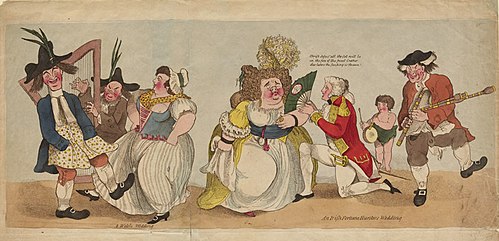Sardonicadjective
Scornfully mocking or cynical.
Sardonicadjective
Disdainfully or ironically humorous.
Sardonicadjective
Forced; unnatural; insincere; hence, derisive, mocking, malignant, or bitterly sarcastic; - applied only to a laugh, smile, or some facial semblance of gayety.
Sardonicadjective
Of, pertaining to, or resembling, a kind of linen made at Colchis.
Sardonicadjective
disdainfully or ironically humorous; scornful and mocking;
Satirenoun
(uncountable) A literary device of writing or art which principally ridicules its subject often as an intended means of provoking or preventing change. Humor, irony, and exaggeration are often used to aid this.
Satirenoun
(countable) A satirical work.
Satirenoun
Severity of remark.
Satirenoun
A composition, generally poetical, holding up vice or folly to reprobation; a keen or severe exposure of what in public or private morals deserves rebuke; an invective poem; as, the Satires of Juvenal.
Satirenoun
Keeness and severity of remark; caustic exposure to reprobation; trenchant wit; sarcasm.
Satirenoun
witty language used to convey insults or scorn;
Satire
Satire is a genre of the visual, literary, and performing arts, usually in the form of fiction and less frequently non-fiction, in which vices, follies, abuses, and shortcomings are held up to ridicule, with the intent of shaming individuals, corporations, government, or society itself into improvement. Although satire is usually meant to be humorous, its greater purpose is often constructive social criticism, using wit to draw attention to both particular and wider issues in society.











